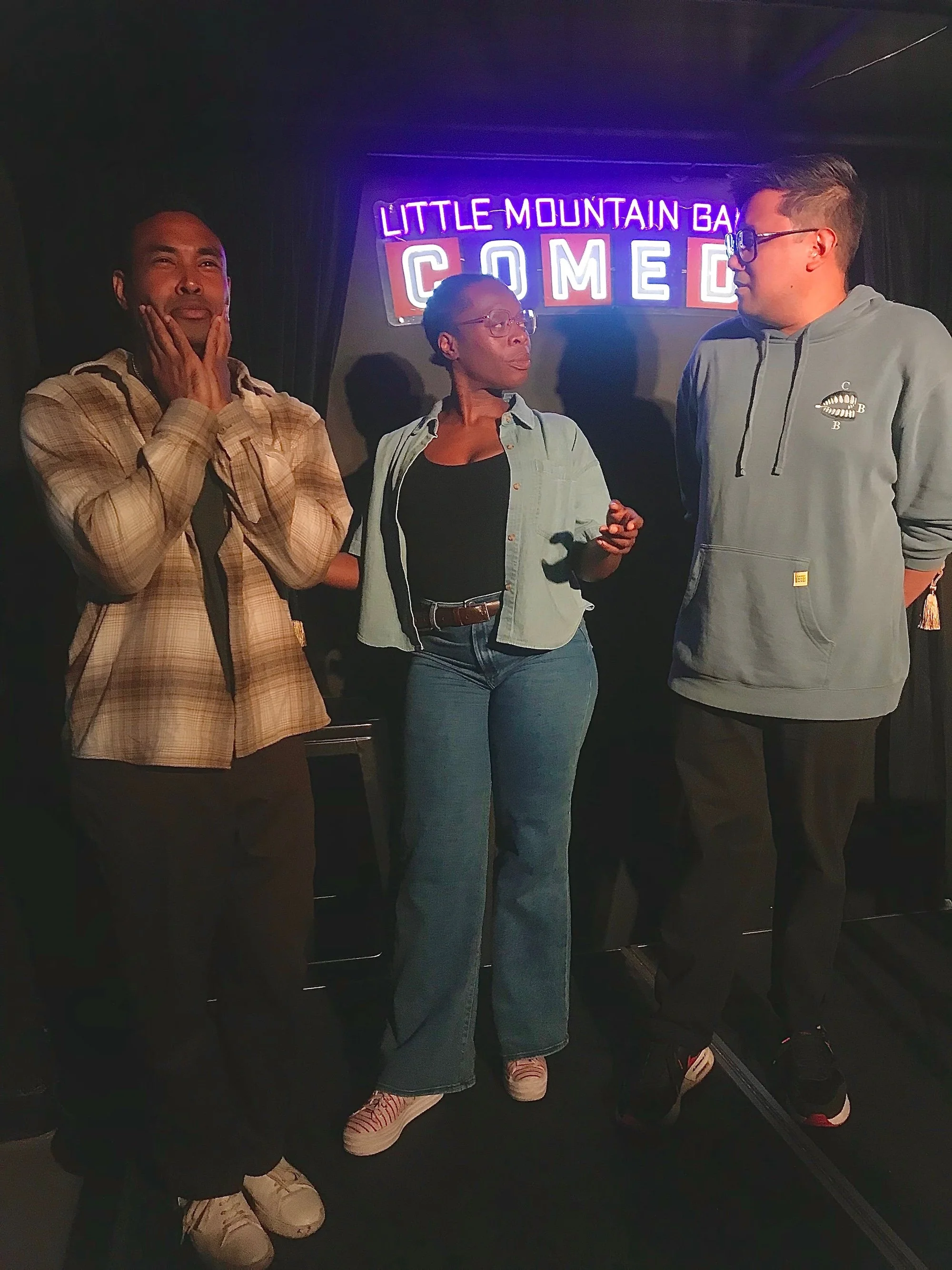No Home Land: Theatre, Bagels, and Vancouver’s Affordability Crisis
/Sabrina Auclair, photo by Geneviève Bélanger.
Inside a dimly lit room at CBC Studio 700, actor Sabrina Auclair makes her debut as a playwright. Her play “No Home Land” is presented by Staircase Theatre’s Movin’ On Up staged readings event. Set in a dystopian Vancouver post-housing market crash, the play follows three employees who work at Sesame Bagel, where bagels cost eighty-five dollars each or five hundred for half a dozen. The employees live at the store and are forbidden to leave. Their boss calls them periodically and serves as their only source of outside information. Choosing to run away from the store means almost certain death on the streets, where food is scarce and violence is commonplace. Auclair explains, “It’s not the reality we live in now, but more how far it could go or how bad the crisis could become. It’s almost like a cautionary tale.”
Auclair’s inspiration came from living in Vancouver as well as an encounter with her own employer. She recounts, “I had an idea to write a play about what’s happening right now with the housing crisis in Vancouver because it’s affecting me and the people I know. I also got into a fight –not a fight, an argument—with the manager of one of the places I worked at at the time when I started writing the play and it inspired this idea of the restaurant.” Initially, she submitted less than fifteen pages to Movin’ On Up. Then she “let it go, for a long time.” A few months later she found out her play had been chosen and she had two months to finish writing her first draft. In contrast to acting she says, “writing feels more vulnerable. I’m a little more self conscious about my writing than my acting.”
Auclair hopes her work provokes people to “think about the situation that’s happening right now. I feel like people complain a lot about the housing crisis in Vancouver but they don’t necessarily do anything about it. There’s a lot of talk and not a lot of action, and coming from a French-Canadian person it’s really weird for me to see that, because we’re so argumentative and we like to fight and protest. It’s such a big deal and it’s affecting people so much, but people don’t really do too much about it, so I hope it’s going to bring up questions and open up a conversation.
It’s affecting everyone—old, young, rich, poor—and it’s going to change Vancouver if nothing is done. It’s important for a city to have diversity of income because you need artists and you need all sorts of people in a city to make it work. That’s what makes it beautiful, and you can’t have a city with only millionaires in it. It just doesn’t work and it’s really sad.”
The ending of “No Home Land” is startlingly bleak. It leaves you with a lot to think about in terms of Vancouver’s affordability, accessibility, and diversity, which is exactly what Auclair intended.






